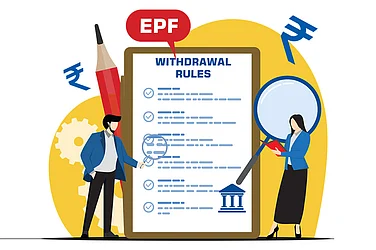Understanding basic budgeting hacks and being mentally prepared to start your investing journey is sometimes not enough, because there lurks another part of yourself that can harm you—that’s procrastination. It literally means the act of delaying a task.
When it comes to investing, you could end up delaying your investment journey or financial planning for various life goals, such as retirement, or not buying life and health insurance well in time.
Some other financial tasks may involve delaying or avoiding paying off credit card or phone bills on time or filing your income tax returns (ITR) late. Delaying payment of equated monthly instalments (EMIs) may be another outcome of procrastination. It could also result in not calling up your loved ones regularly, leading to soured relations.
What Causes It?
Some common reasons for procrastinating money-related tasks could be confusion regarding processes, lack of awareness about choosing the right products, low degree of self-control, lack of motivation and shortage of time.
Jahanvi, mentioned in the earlier segment of ‘Instant Gratification’, says she often feels an aversion towards tasks like tax-filing and ends up procrastinating the process. She says: “I procrastinate a lot. I don’t really understand a lot of concepts related to tax-filing and investment and I’m not very well versed with the procedures for doing these things. So I need to read up a lot, but then I feel like I don’t know where to start. I feel I could do it by myself, like sit for half an hour, watch a few tutorials and fill up the information and do a little bit of calculation. But I often tend not to do it.”
How Does It Affect You?
If you do not become cognisant to your problem, you will most likely end up making losses.
The perils of procrastination as a bad financial habit are many, from penalties on pending tax, bills and EMI and getting into a debt trap and damaging your credit score.
Vaibhav Agarwal, a CFA says that not filing taxes on time can have severe consequences such as the imposition of penalties under the Section 234 of the Income-tax Act, 1961. Also, not paying advance tax on time can lead to the levy of additional interest, thus increasing the taxpayer’s tax load.
He says: “If you do not plan your taxes and filing, you will lose a lot of benefits. If you do not file your returns on time or your advance taxes properly, you will be forced to pay interest and penalty.”
If individuals file their taxes on time and optimise their tax outflow, they can leverage “tax loss harvesting” to reduce their overall tax burden, says Agarwal. Tax loss harvesting refers to selling a security which has reduced in value to show the same as a loss while filing ITR. “Beyond the tax benefits, there are other benefits to consider like not paying interest and penalties, avoiding a debt trap that it can potentially lead to especially when it comes to credit card bills, and not being able to maximise gains in the financial planning exercise,” says Agarwal.
Delaying investments could rob you of the benefits of the power of compounding because the earlier you start investing, the better it is, while not buying adequate insurance could leave you and your finances unprotected and vulnerable against life’s uncertainties.
Remember that procrastination is a silent enemy you must ward off as quickly as possible.
How To Overcome Procrastination?
Estimate the losses you have borne because of procrastination in the past.
Assess how the losses have affected your financial life—if it has landed you in debt and led to miss opportunities.
Be proactive in fixing accountability. You can do this by making a list of finance-related tasks. With practice, you will become diligent.
Automate your bills if you think you can’t handle them regularly on your own. Ensure there’s enough money in the account on the said dates.
Go for a financial plan, as it would help build discipline and will help you realise the value of every rupee that you earn.














